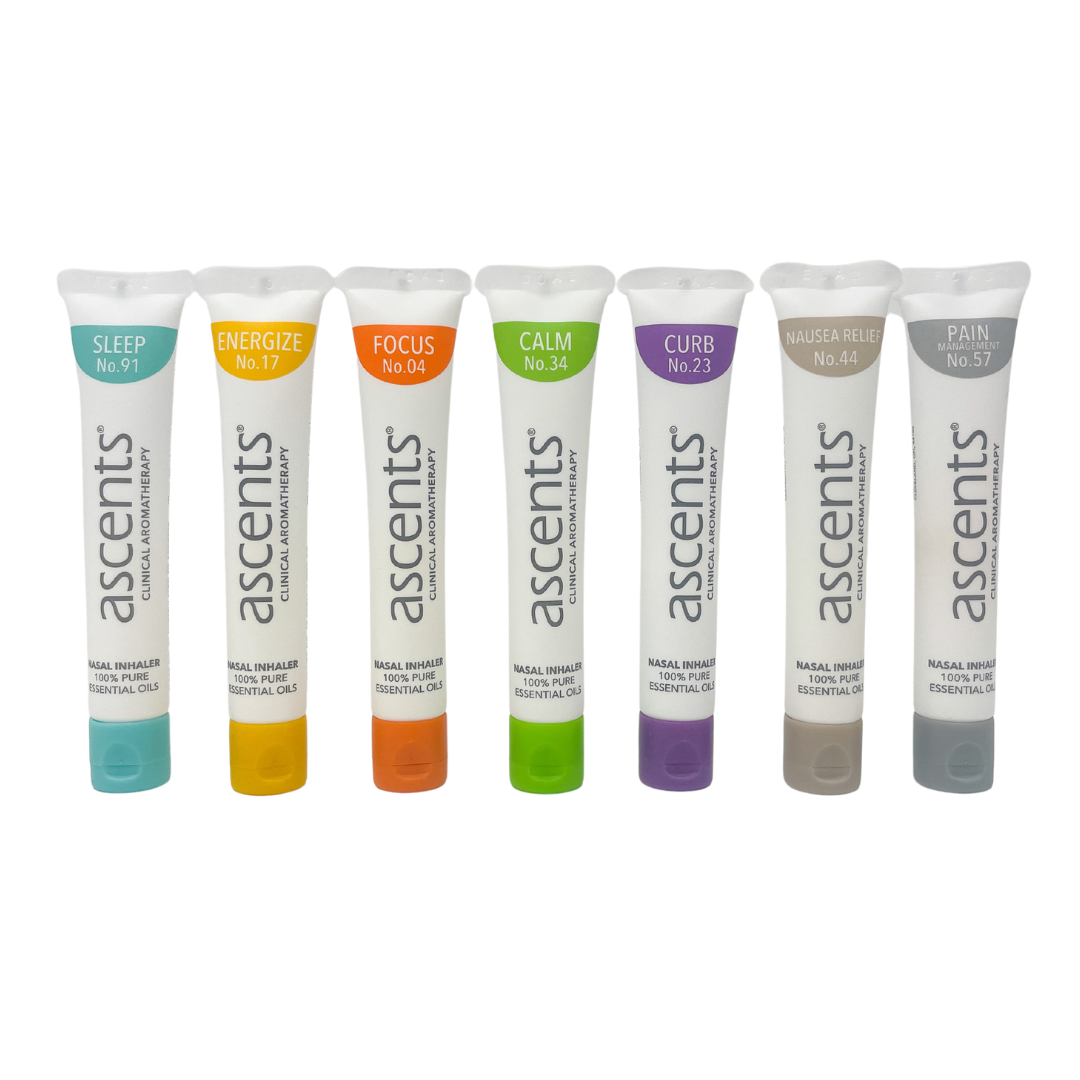
Aromatherapy Essential Oil Nasal Inhalers: An Overview For Medical Professionals
Article Revised 08/25/23
 Ascents Essential Oil Nasal Inhalers
Ascents Essential Oil Nasal Inhalers
Aromatherapy inhalers, also called essential oil inhalers, offer a way to package and diffuse essential oils for personal use via nasal inhalation. These inhalers are available in a variety of different form factors, including aromasticks (or aroma sticks), sachets, and aromatherapy tubes.
Healthcare Professional?
History of Aromatherapy & Essential Oil Inhalers in Medical Settings
Aromatherapy in Hospitals and Clinical Environments

It is, to this day, not uncommon to find hospitals turning a blind eye to the use of bottled, liquid essential oils by frontline caregivers -- a practice that, while well-intentioned, is clearly not ideal in a clinical environment. For instance, essential oil-saturated cotton balls in plastic baggies are still a part of many nurses’ and medical aids’ arsenal of low-intervention, first-line treatments to help control pain in birthing mothers, nausea or vomiting (PONV) post-surgical patients, or CINV (chemotherapy-induced nausea and vomiting) and anxiety in cancer patients undergoing treatment.
Although the cotton-ball-in-plastic-bag method may be widespread, there are obvious issues with allowing medical professionals to bring in personal essential oils from home to use on patients. While administrators may often follow a “don’t ask, don’t tell” philosophy, the reality is that the oils are not part of a set treatment plan, or dispensed from the hospital or clinic’s supplies. Although very safe when used correctly, essential oils still contain volatile organic substances that, as mentioned above, could potentially cause inadvertent harm from even the most well-meaning caregivers. Inhaling oils directly from a euro-dropper bottle is unsanitary, and, if shared with other patients, could cause bacteria or viruses to spread.
Standardizing the Use of Aromatherapy by Medical Care Teams
Beginning in the 1990s, “aromasticks” began making appearances in hospitals in Europe, in particular, the UK. The Royal Marsden in London, England, is generally recognized as having been the pioneer in bringing clinical aromatherapy to hospital settings by utilizing aromasticks within its cancer program to help mitigate side effects of both the disease and treatments like chemotherapy. For those familiar with Vicks nasal inhalers, aromasticks resemble them almost exactly, only instead of a blend of camphor to help open up the nasal passages, they are filled with essential oils intended to address a range of medical symptoms.
While aromasticks helped to remove many of the potential issues of the cotton-ball-in-baggie/direct-inhalation-from-bottle aromatherapy methods, what they still couldn’t do -- and can’t until this day -- is guarantee standardization and quality, while limiting contact with some of the most germ-filled areas of patients’ bodies -- their noses.
Modern Aromatherapy Use in Clinical Environments
Even though aromatherapy has become increasingly popular in hospitals and clinics over the past two decades, few aromatherapy products on the market are able to meet the needs and requirements of the medical community in hospital or clinical settings. Therefore, most doctors, nurses, and aids have continued to give patients DIY home blends of essential oils that have not been tested for efficacy or purity, using aromasticks on a good day, or cotton balls on a not-so-great day, neither of which are generally regulated or officially sanctioned by the medical institutions for which they work.
Ascents Clinical Aromatherapy Inhalers: Developed for Medical Professionals
Thanks to advances in packaging engineering, it is now possible for clinicians to offer patients the comfort of aromatherapy without the concerns around safety and efficacy that arise from traditional inhalers. Ascents’ essential oil nasal inhalers were developed by Aeroscena to address some of the common problems with the way aromatherapy is currently dispensed in many hospitals and clinical environments. Some of the benefits include:
- Condition-specific, clinically-backed formulas, including those that may help decrease stress, nausea & insomnia
- Sealed, sanitary, single-patient applicators
- Safety and quality assured
- Consistent, optimal dosing
- Non-pharmacological intervention
- No risk of side effects or drug interactions
- Patient or practitioner administered
- Removes the stress of choosing the “right” essential oil for the symptom set
- Convenient -- no messes, spills, blending, or mixing required
- Accessible, even for those with impaired mobility
Hospital and clinic administrators benefit, too, by knowing that each Ascents formula is based on the best-existing clinical evidence, mitigating issues that may come as the result of a more “DIY” approach to aromatherapy. They are then able to operationalize and regulate essential oils’ use in their facilities as they would any other medical supply.
Finally, and most importantly, Ascents clinical aromatherapy inhalers allow patients to feel more in control of their health and well-being, making their time under medical supervision easier and less stressful both for those who need care and for those professionals caring for them.


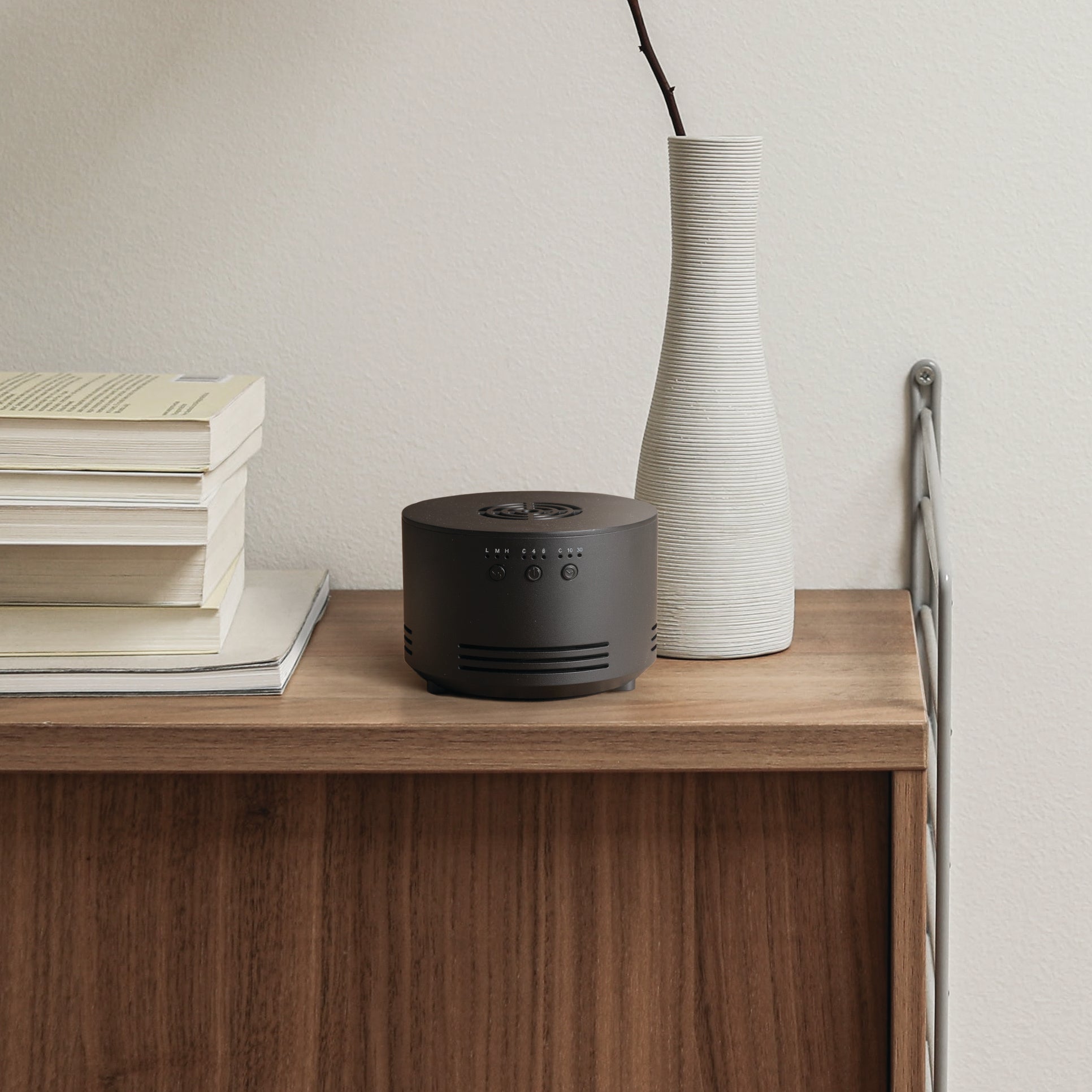
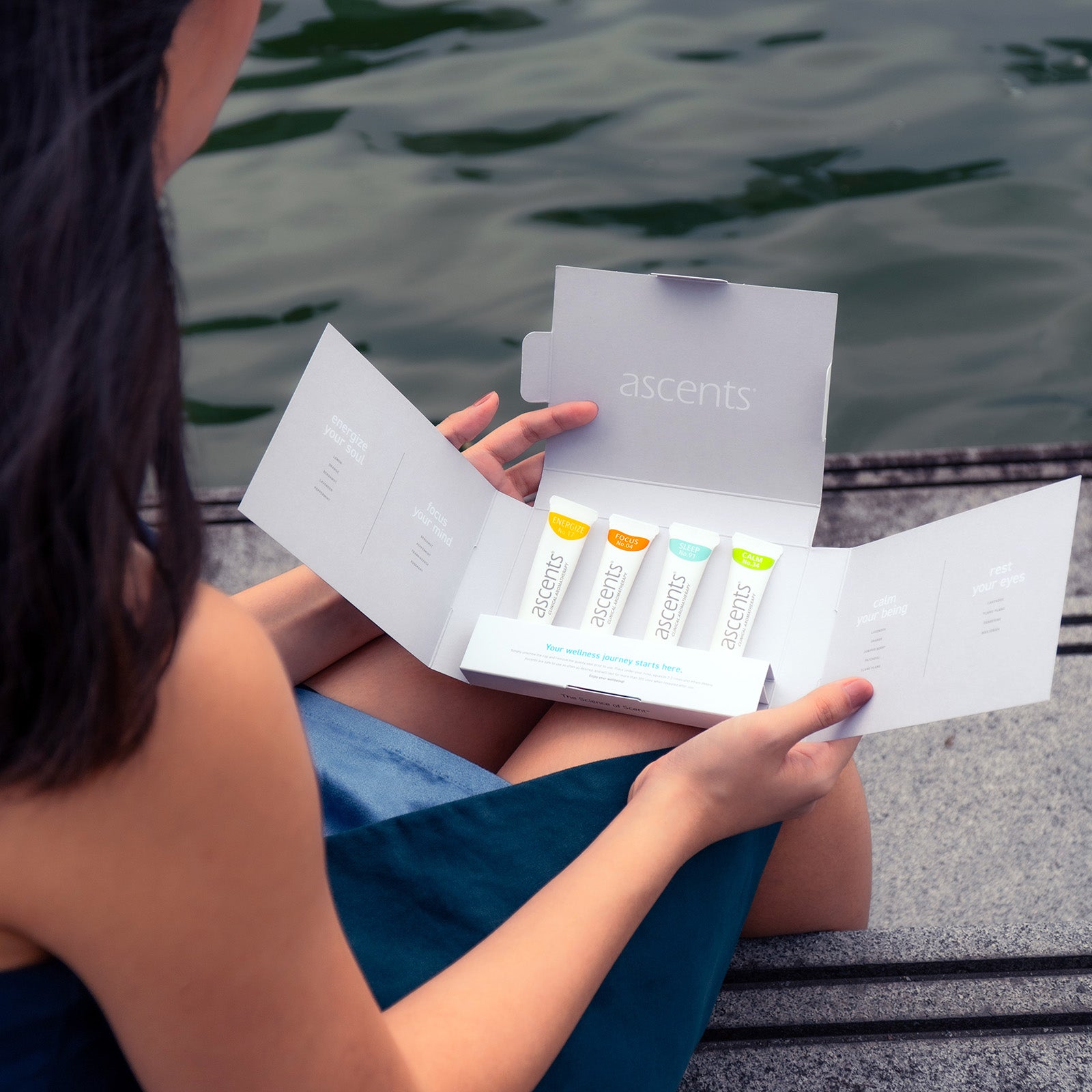
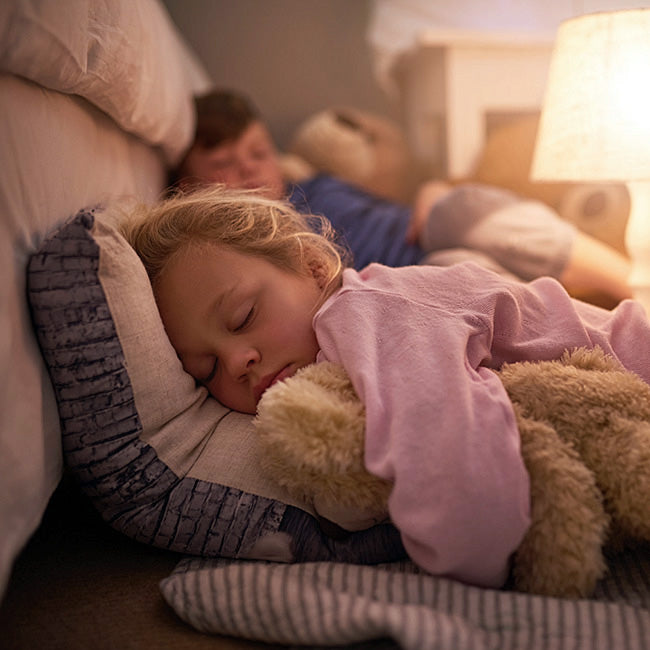


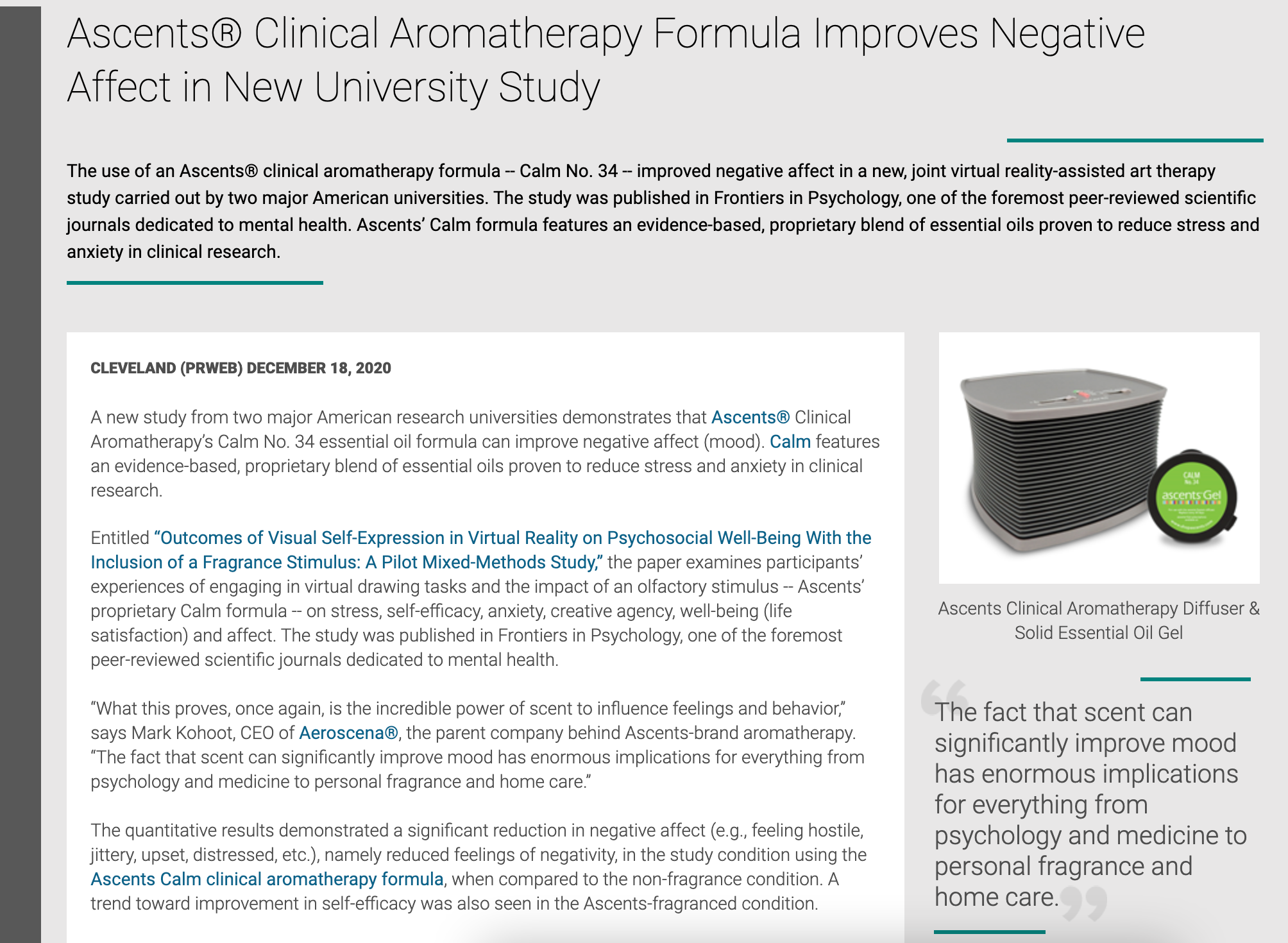
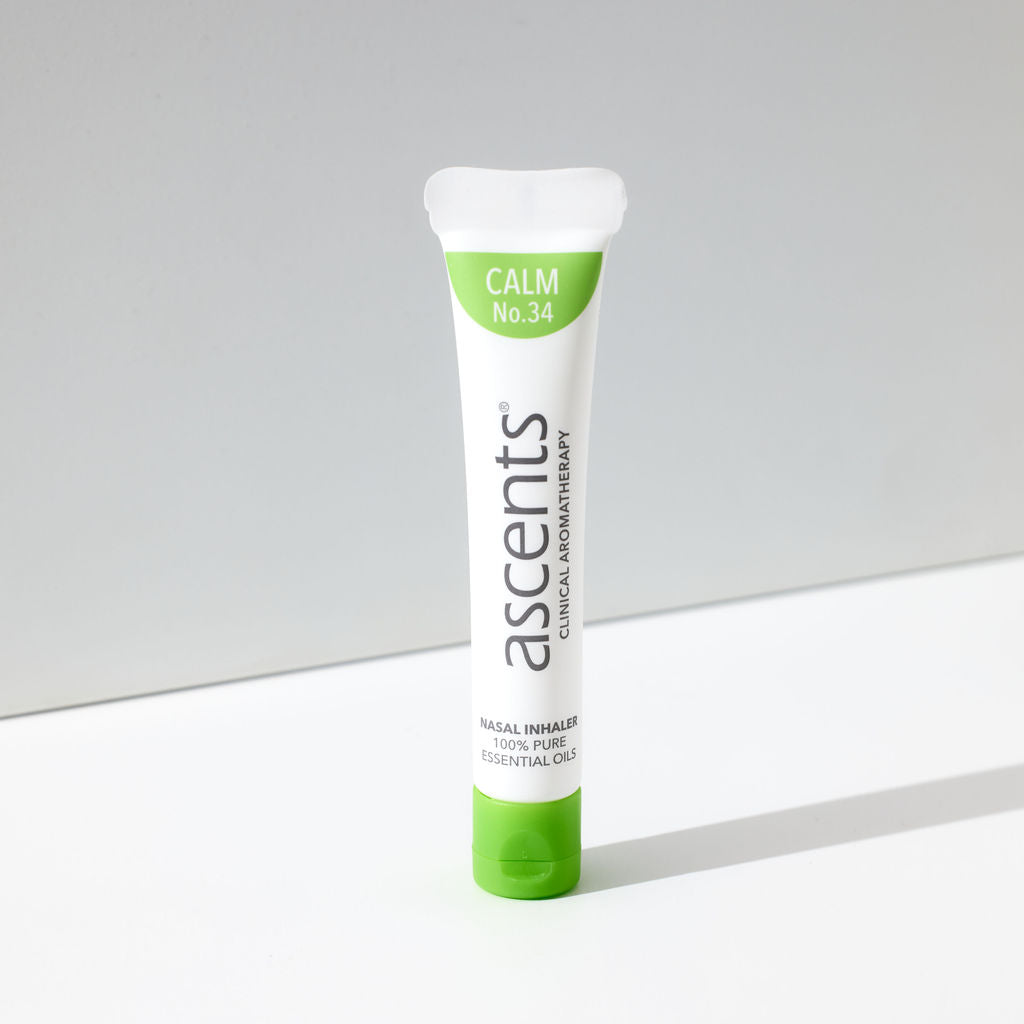
Leave a comment
This site is protected by hCaptcha and the hCaptcha Privacy Policy and Terms of Service apply.